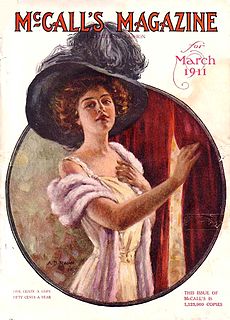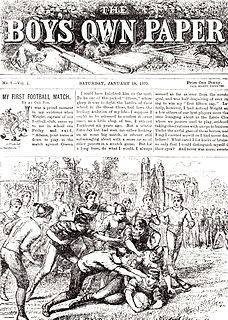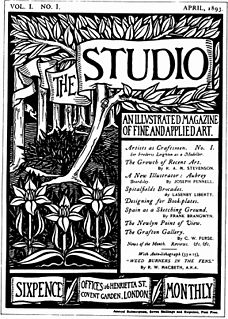Related Research Articles
A magazine is a periodical publication which is printed in gloss-coated and matte paper or electronically published. Magazines are generally published on a regular schedule and contain a variety of content. They are generally financed by advertising, by a purchase price, by prepaid subscriptions, or a combination of the three.

A pamphlet is an unbound book. Pamphlets may consist of a single sheet of paper that is printed on both sides and folded in half, in thirds, or in fourths, called a leaflet or it may consist of a few pages that are folded in half and saddle stapled at the crease to make a simple book.

The Cali Cartel was a drug cartel based in southern Colombia, around the city of Cali and the Valle del Cauca Department. Its founders were the brothers Gilberto Rodríguez Orejuela and Miguel Rodríguez Orejuela, and José Santacruz Londoño. They broke away from Pablo Escobar and his Medellín associates in the late 1980s, when Hélmer "Pacho" Herrera joined what became a four-man executive board that ran the cartel.
The fuddle duddle incident in Canadian political history occurred on February 16, 1971, when Prime Minister of Canada Pierre Trudeau was alleged to have spoken or at least mouthed unparliamentary language in the House of Commons, causing a minor scandal. Trudeau mentioned the words "fuddle duddle" in an ambiguous answer to questions about what he may or may not have said in Parliament.
Yuri Timofeyevich Galanskov was a Russian poet, historian, human rights activist and dissident. For his political activities, such as founding and editing samizdat almanac Phoenix, he was incarcerated in prisons, camps and forced treatment psychiatric hospitals (Psikhushkas). He died in a labor camp.

McCall's was a monthly American women's magazine, published by the McCall Corporation, that enjoyed great popularity through much of the 20th century, peaking at a readership of 8.4 million in the early 1960s. It was established as a small-format magazine called The Queen in 1873. In 1897 it was renamed McCall's Magazine—The Queen of Fashion and subsequently grew in size to become a large-format glossy. It was one of the "Seven Sisters" group of women's service magazines.
Fraser's Magazine for Town and Country was a general and literary journal published in London from 1830 to 1882, which initially took a strong Tory line in politics. It was founded by Hugh Fraser and William Maginn in 1830 and loosely directed by Maginn under the name Oliver Yorke until about 1840. It circulated until 1882, when it was renamed Longman's Magazine.
Dany Toussaint was a candidate in the February 2006 presidential election in Haiti. Toussaint is a former Haitian Army major, police chief and bodyguard of Jean-Bertrand Aristide. He is a former Senator and leader of the Haitian Democratic and Reformist Movement Party.

The sixth Pan American Games were held in Cali, Colombia, from July 30 to August 13, 1971. A total of 2,935 athletes from 32 countries participated in seventeen sports.

The Boy's Own Paper was a British story paper aimed at young and teenage boys, published from 1879 to 1967.

La Civiltà Cattolica is a periodical published by the Jesuits in Rome, Italy. It has been published continuously since 1850 and is among the oldest of Catholic Italian periodicals. All of the journal's articles are the collective responsibility of the entire "college" of the magazine's writers even if published under a single author's name. It is the only one to be directly revised by the Secretariat of State of the Holy See and to receive its approval before being published.

Molla Nasraddin was an eight-page Azerbaijani satirical periodical published in Tiflis, Tabriz and Baku in the Azerbaijani and occasionally Russian languages. The magazine was "read across the Muslim world from Morocco to East Asia". It was founded by Jalil Mammadguluzadeh (1866–1932) and Omar Faig Nemanzadeh (1872-1937), and named after Nasreddin, the legendary Sufi wise man-cum-fool of the Middle Ages. Columnists wrote articles that "boldly satirized politics, religion, colonialism, Westernization, and modernization, education, and the oppression of women".

The Studio: An Illustrated Magazine of Fine and Applied Art was an illustrated fine arts and decorative arts magazine published in London from 1893 until 1964. The founder and first editor was Charles Holme. The magazine exerted a major influence on the development of the Art Nouveau and Arts and Crafts movements. It was absorbed into Studio International magazine in 1964.
Chinese publishing and printing industry have a long history. The first printed book discovered so far in the world was published in China during Tang Dynasty. With solid literatures and 5,000-year cultural accumulation, the Chinese publishing industry, however, fell behind western countries due to wars and political issues. The Chinese publishing industry continues to grow in modern times. In 2004, China published 25.77 billion copies of national-level and provincial-level newspapers, 2.69 billion magazines, and 6.44 billion books.

Scribner's Monthly: An Illustrated Magazine for the People was an illustrated American literary periodical published from 1870 until 1881. Following sale of the company which produced it in 1881, the magazine was relaunched as The Century Magazine.

Periodical literature is a category of serial publications that appear in a new edition on a regular schedule. The most familiar example is the magazine, typically published weekly, monthly, or quarterly. Other examples of periodicals are newsletters, academic journals and yearbooks. Newspapers, often published daily or weekly, are, strictly speaking, a separate category of serial. Periodicals are most often referenced by volume and Issue. Periodicals have a set period and can be classified as popular and scholarly. Indefinite periodicals have an indefinite production cycle and have no plans to stop publishing. Periodicals use the International Standard Serial Numbers a standardized reference number. Periodicals often have a preferred and lower for postal distribution.

Azalea: A Magazine by Third World Lesbians was a quarterly periodical for black, Asian, Latina, and Native American lesbians published between 1977 and 1983 by the Salsa Soul Sisters, Third World Wimmin Inc Collective. The Collective also published the Salsa Soul Sisters/Third World Women's Gay-zette.

"I've Been to the Mountaintop" is the popular name of the last speech delivered by Martin Luther King Jr.

Pacific RailNews(PRN), originally named Pacific News and later RailNews, was an American monthly magazine about railroads and rail transit, oriented for railfans. It was published from 1961 until 1999. Although its coverage primarily concerned the western United States and western Canada, the magazine included less-detailed news on railroads and rail-transit from non-western states, as well as Mexico.

Dada Tank was a Yugoslav Dadaist single issue publication published in Zagreb in June 1922 and edited by Dragan Aleksić. Aleksić published Dada Tank as a response to Branko Ve Poljanski and his brother Ljubomir Micić's anti-Dada publication Dada-Jok from May 1922.
References
- ↑ Sobaka means "hound" or "dog" in Russian.
- ↑ The Double Standard of NCHR
- ↑ Cali Ruchala, 2003: If there's anything I've tried to illustrate with Sobaka, anything I've hoped to hammer into the heads of everyone within a mile radius of our paper abode, it's to believe nothing you don't see with your own two eyes – and to make an effort to see as much as possible (2003)
- ↑ Sobaka #17
| | This European political magazine or journal-related article is a stub. You can help Wikipedia by expanding it. See tips for writing articles about magazines. Further suggestions might be found on the article's talk page. |